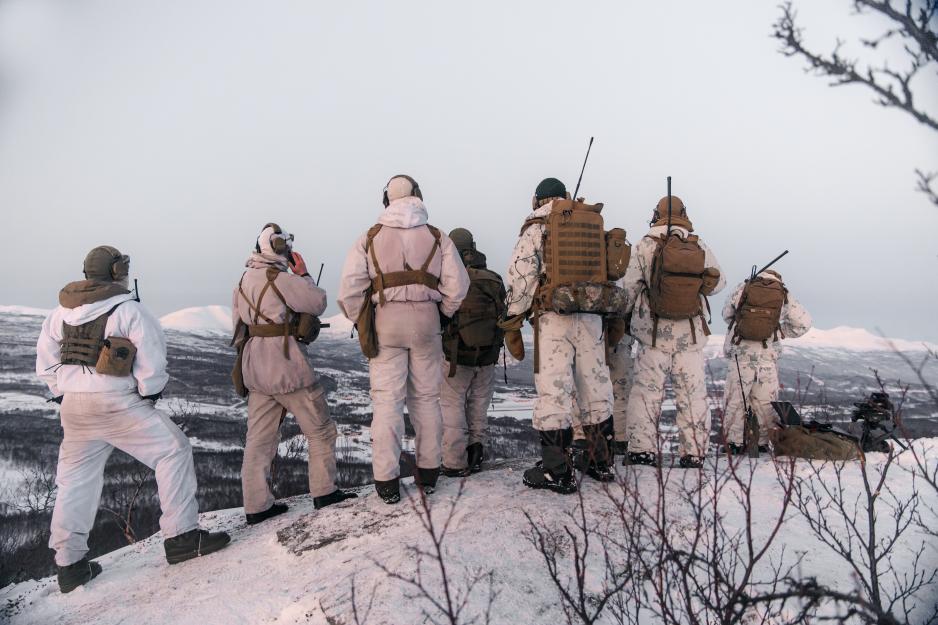Newsletter: Thawing Permafrost Changes Business and Security in the Arctic

Picture of U.S. Marines and Norwegian Army Soldiers at a training event in Setermoen, Norway. The Norwegian Armed Forces have developed a close relationship with the US Marine Corps who trains regularly in Norway. (U.S. Marine Corps photo by Lance Cpl. Patrick King).
Dear reader! This week, the thawing Arctic proves to be an ambiguous concern for communities and businesses in the Arctic – as well as for the security situation. And while the Covid-19 pandemic still has a lingering presence in the High North, its aftermath also has its ups and downs. This is the news week in the High North!
14 military leaders from 11 European and North American states discussed security in the High North at the annual Arctic Security Forces Roundtable on Wednesday this week.
And Norway’s newly appointed Defense Minister is in dialogue with the USA and will meet his American counterpart in Washington D.C. next week. (Norwegian only.)
Thawing Arctic
Increased ground temperatures and thawing permafrost will have negative effect on 55 percent of the infrastructure in Arctic coast zones by 2050.
Now, new research identifies the Arctic communities most at risk from thawing permafrost.
With decreased ocean ice comes increased Polar Sea traffic. South Korean investors – like many others – now explore the Northern Sea Route (NSR) for increased container shipping.
Cargo and transit traffic along the NSR also increased in 2021.
Post-pandemic business ups and downs
Svalbard has been shielded from the pandemic until now. However, Thursday this week it was announced that several cases of Covid-19 have been confirmed in Longyearbyen. While some measures will be taken, self-testing and observing social distance will be the main ingredients in the local handling of the matter.
The Covid-19 pandemic was difficult for Alaska’s tourism industry; however, 2021 has demonstrated a surge in passenger numbers at the airport in Anchorage.
While in Northern Sweden, a derailed iron ore freight train causes trouble for goods freight and may cost the LKAB mining company a serious amount of money.
All this and a whole lot more you can read at High North News. Follow us for news about the Arctic and feel free to tip us off!
We also always welcome new followers in all arenas: Facebook, Twitter, Instagram and Linkedin.
Please enjoy your November weekend, and kind regards from the HNN editorial staff!
Trine Jonassen,
News Editor, High North News

